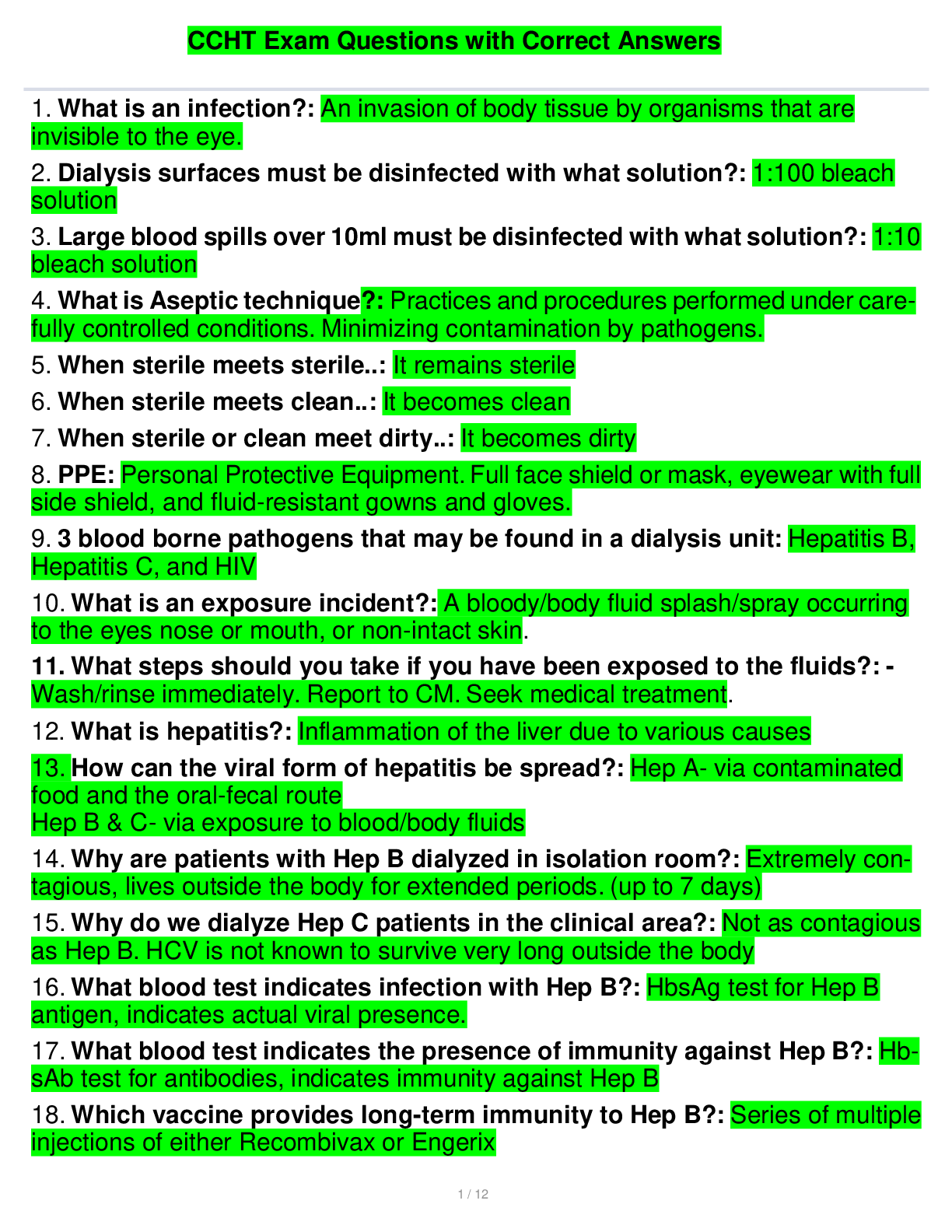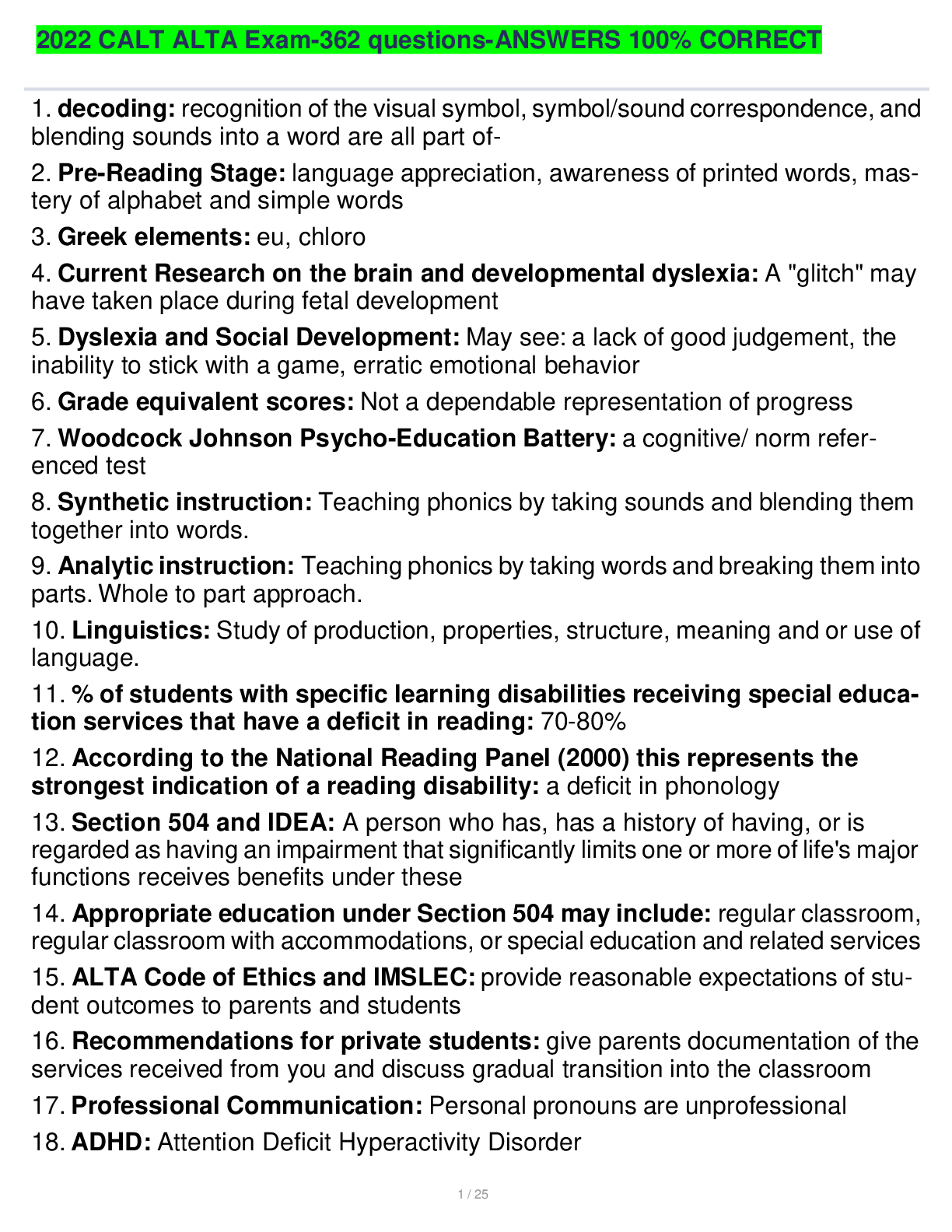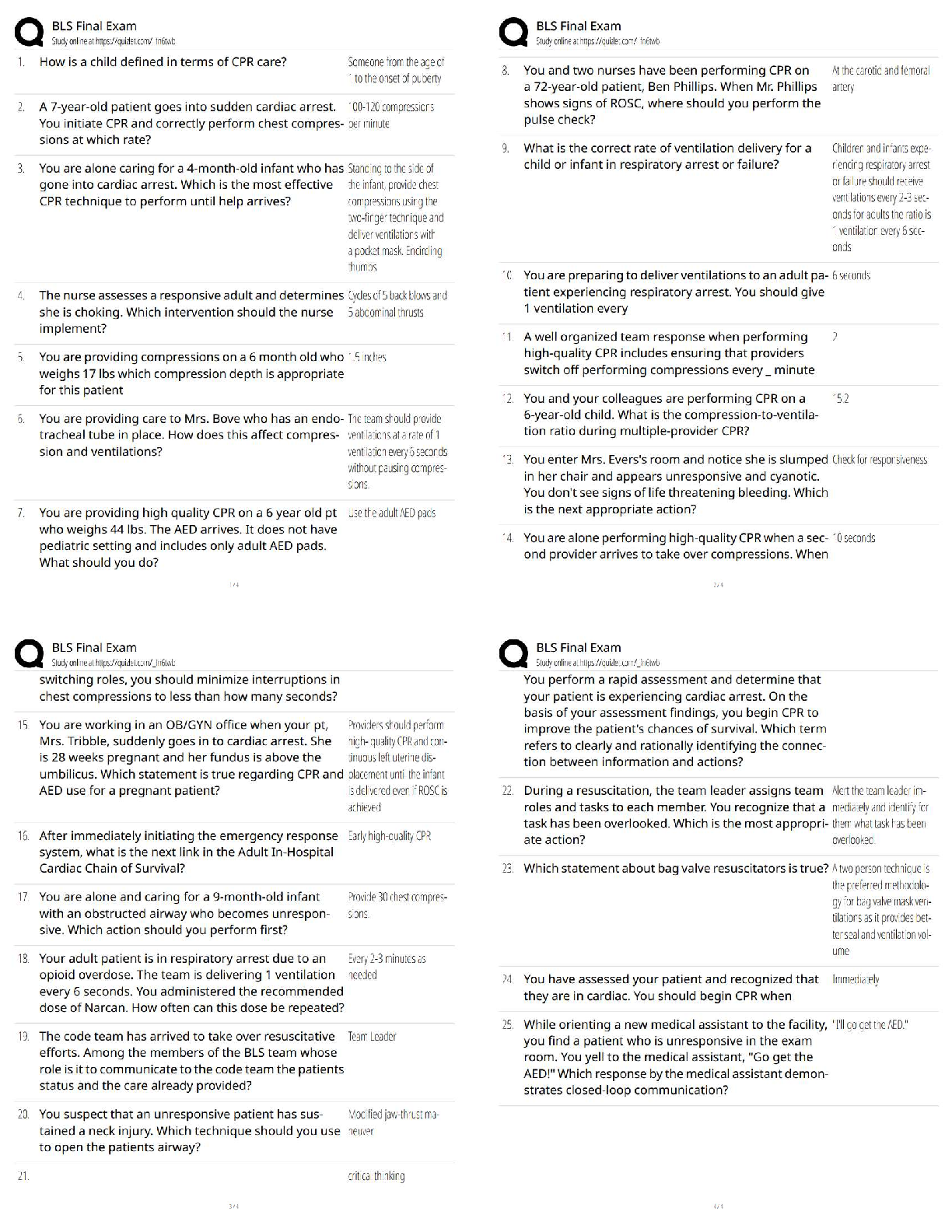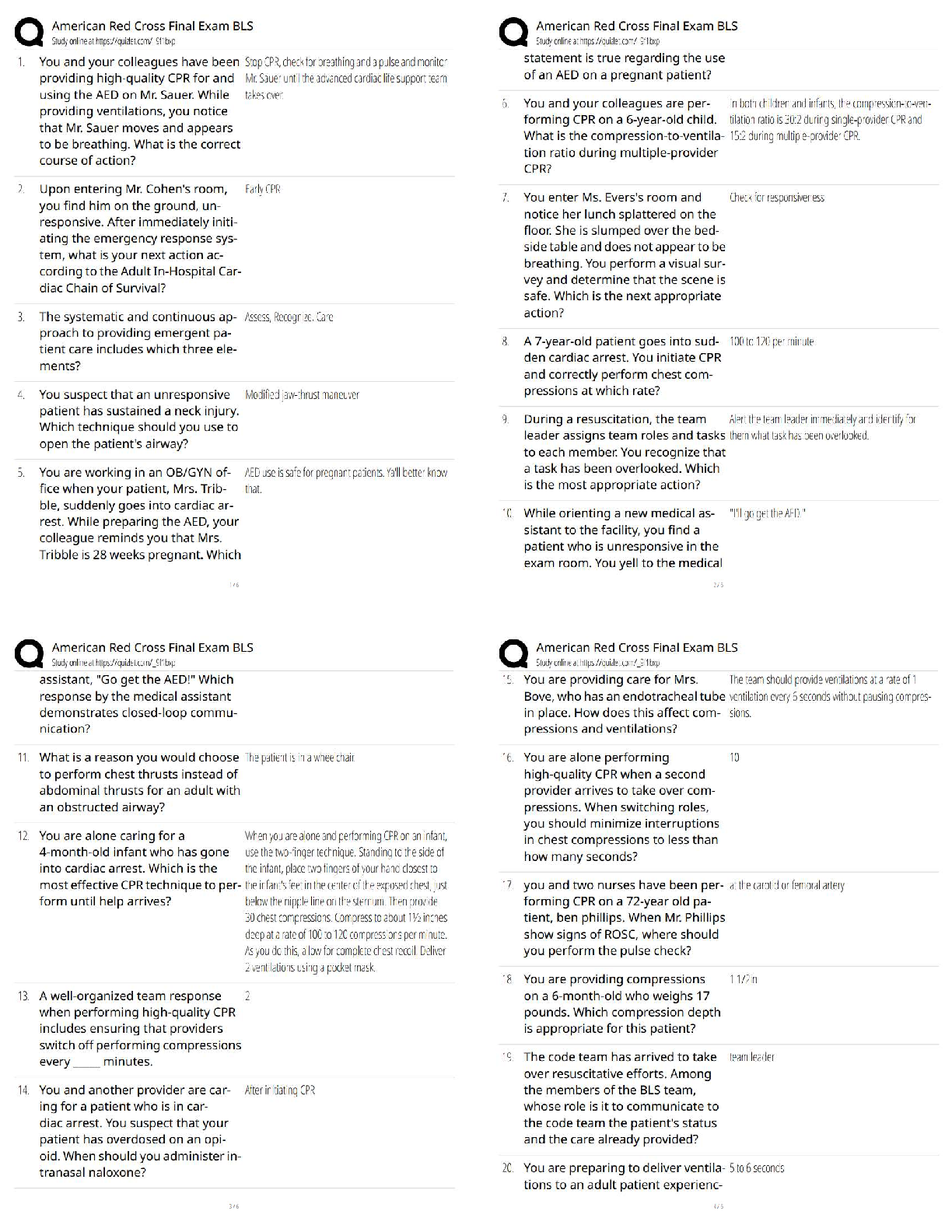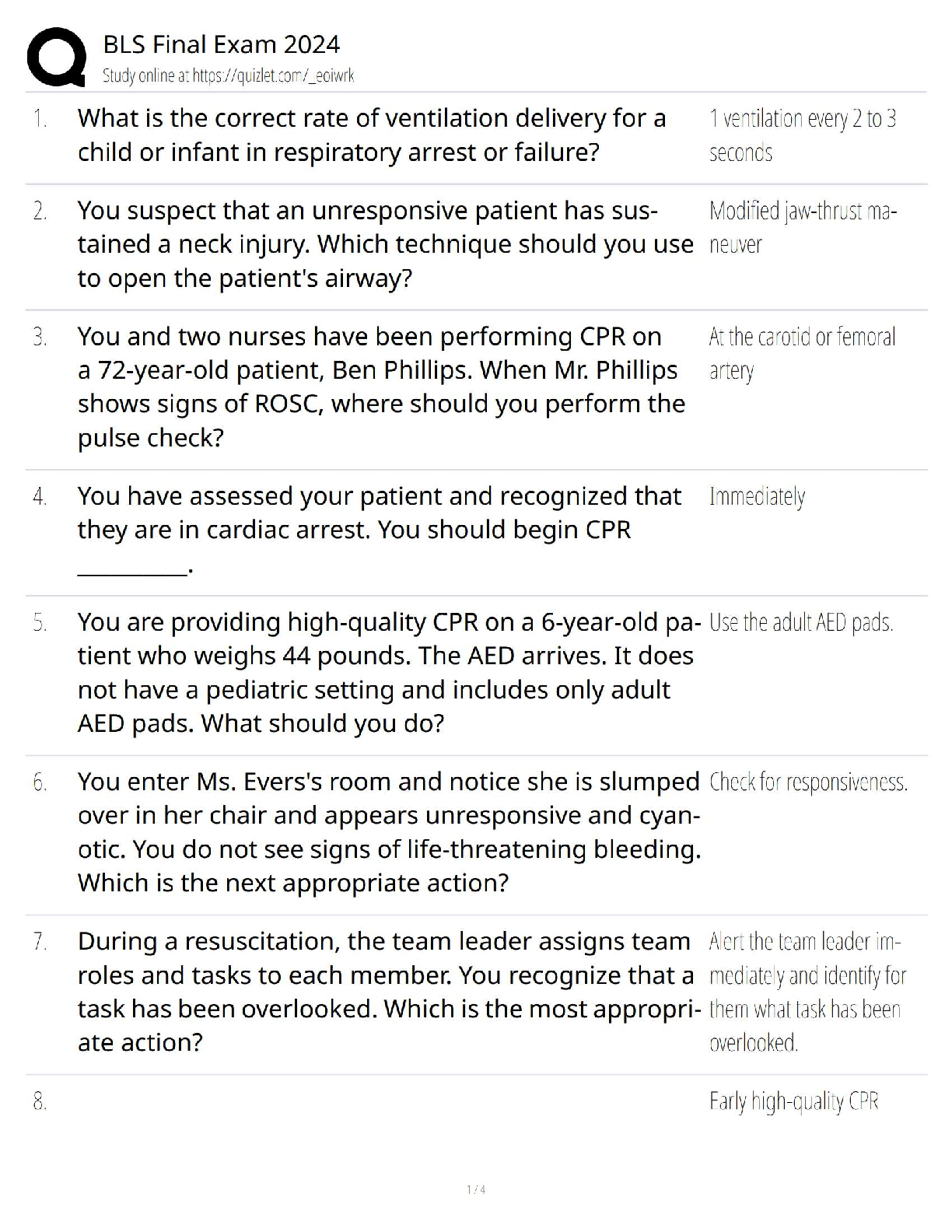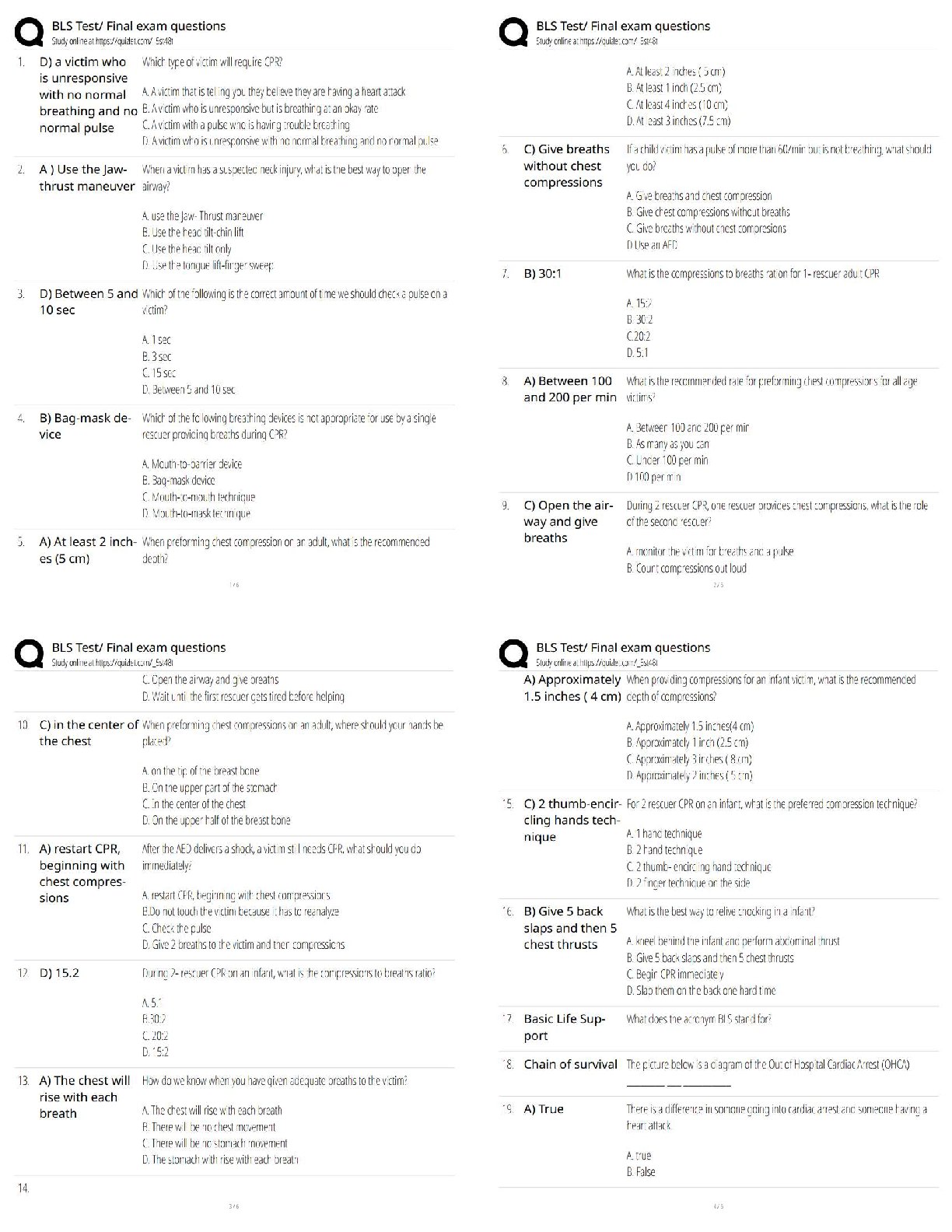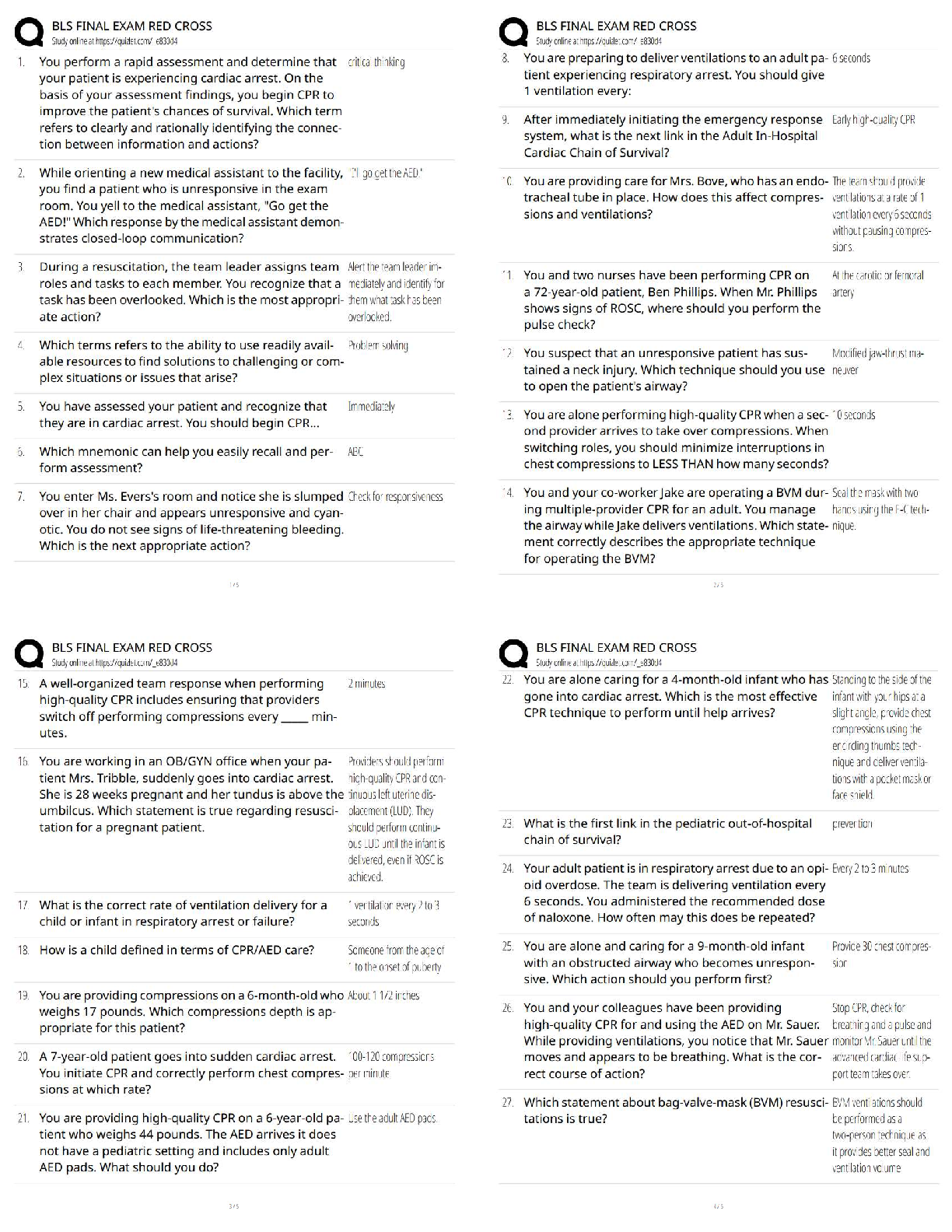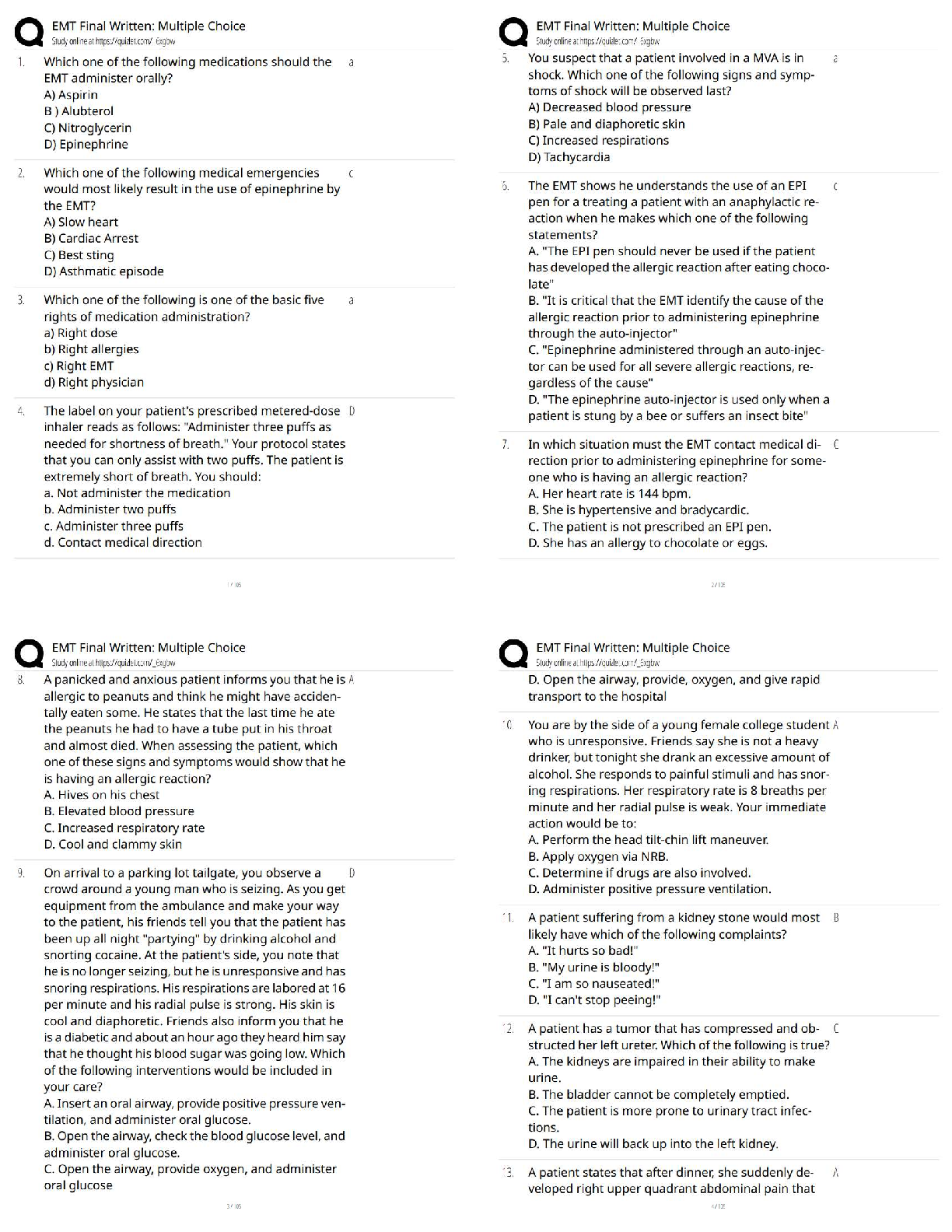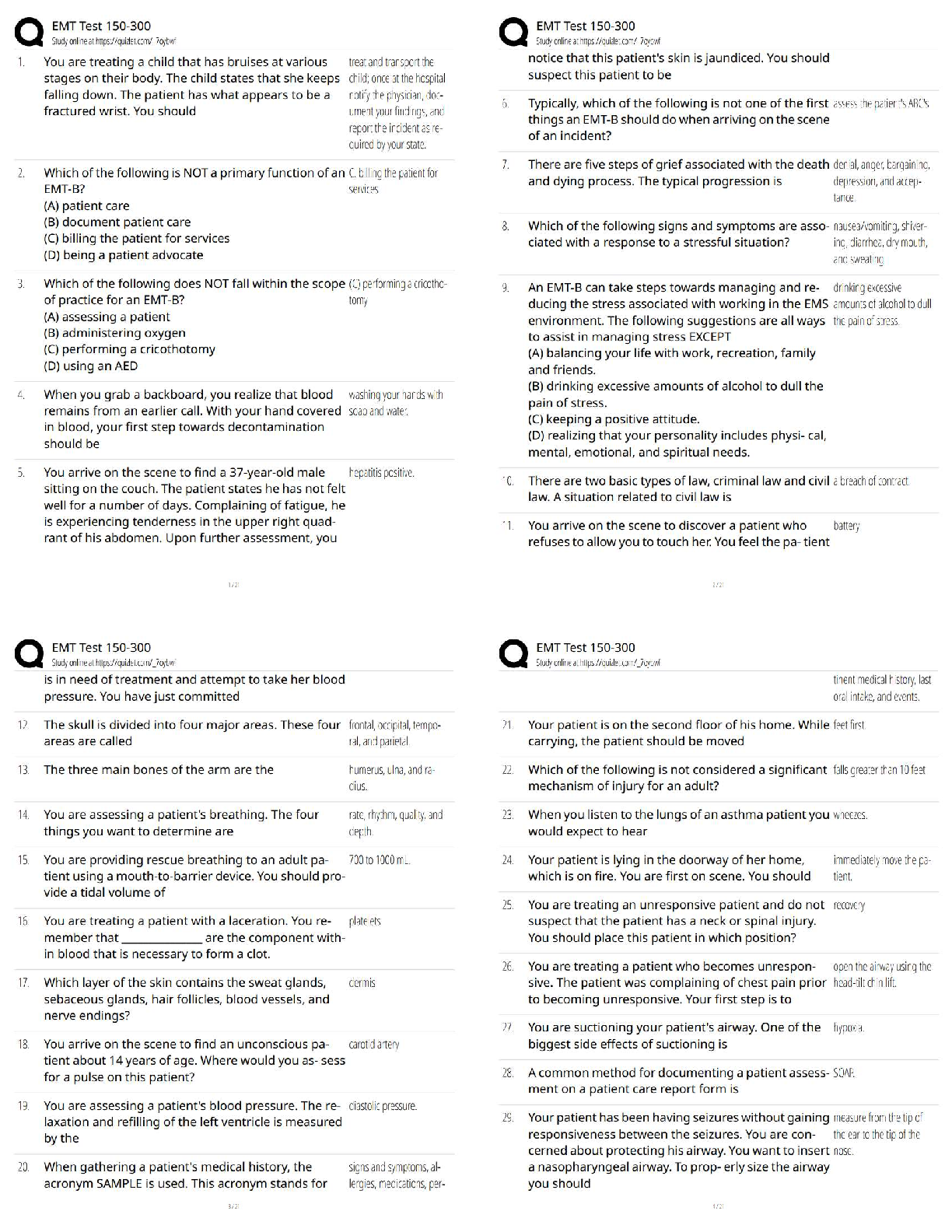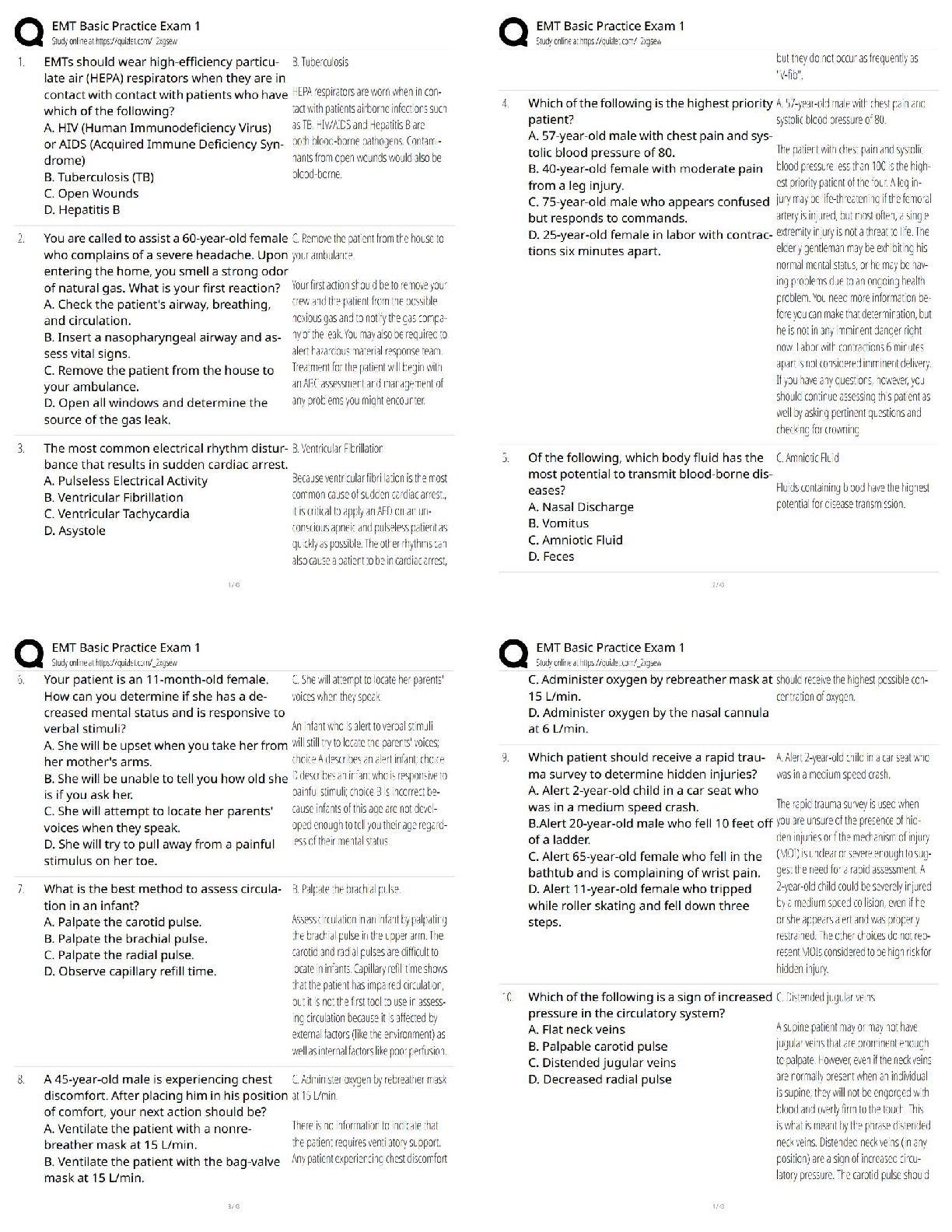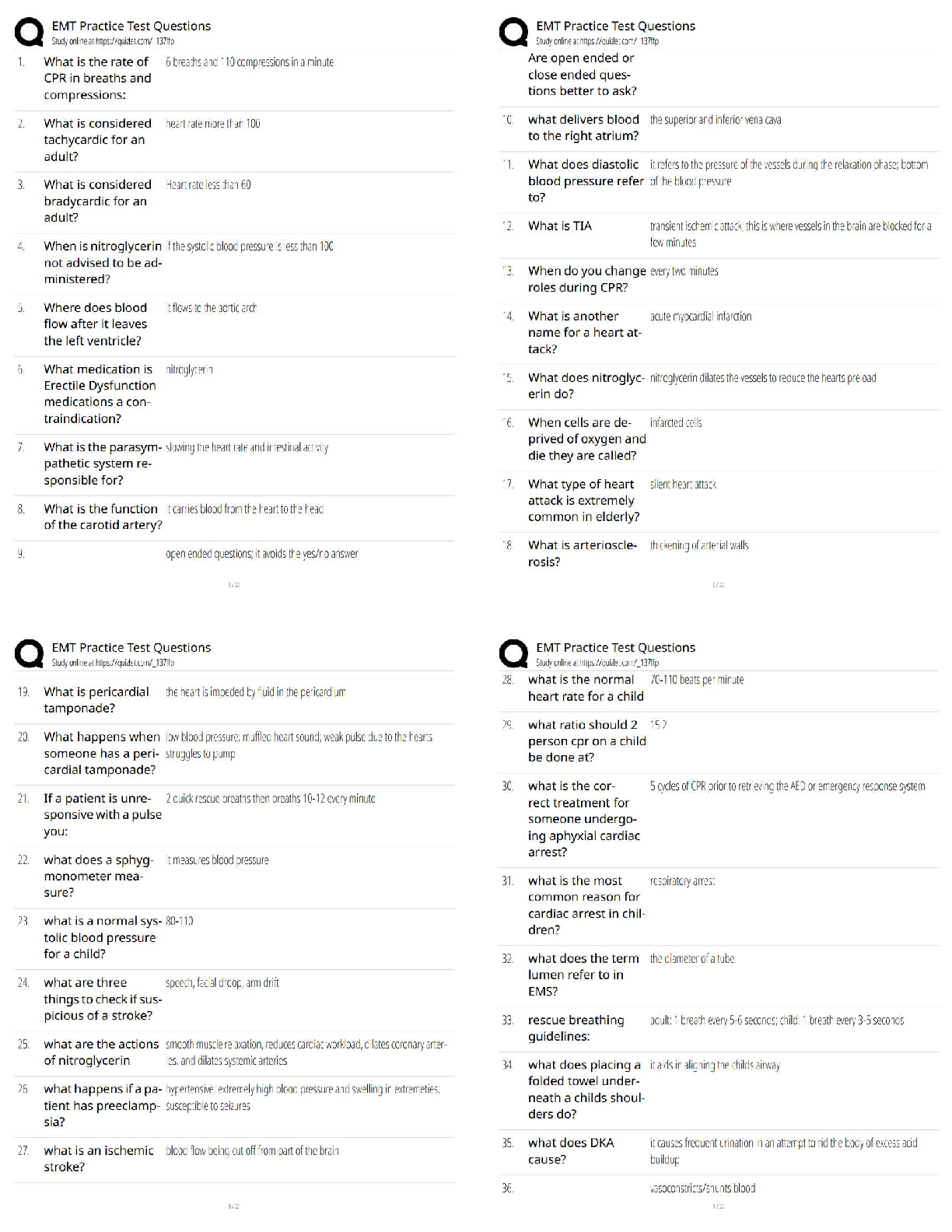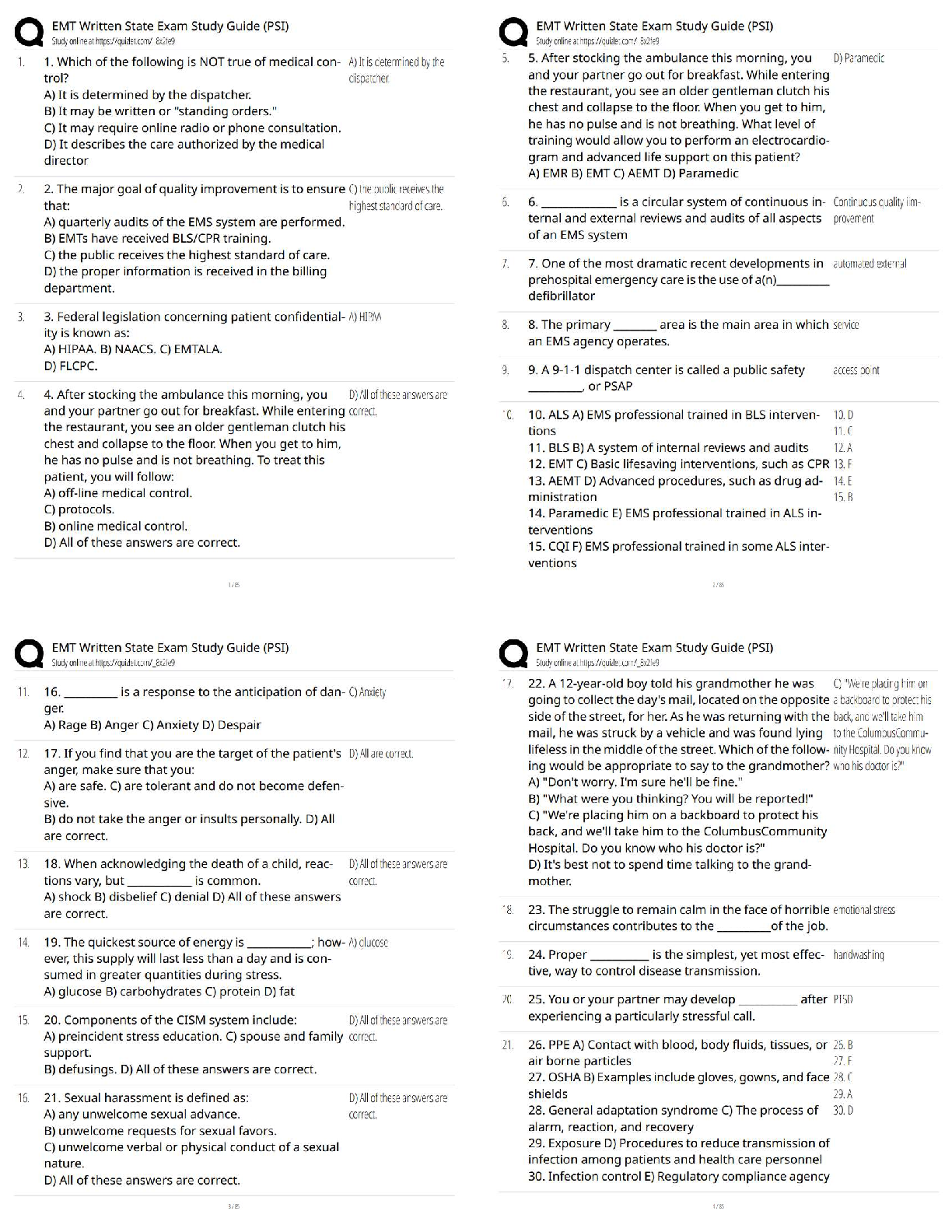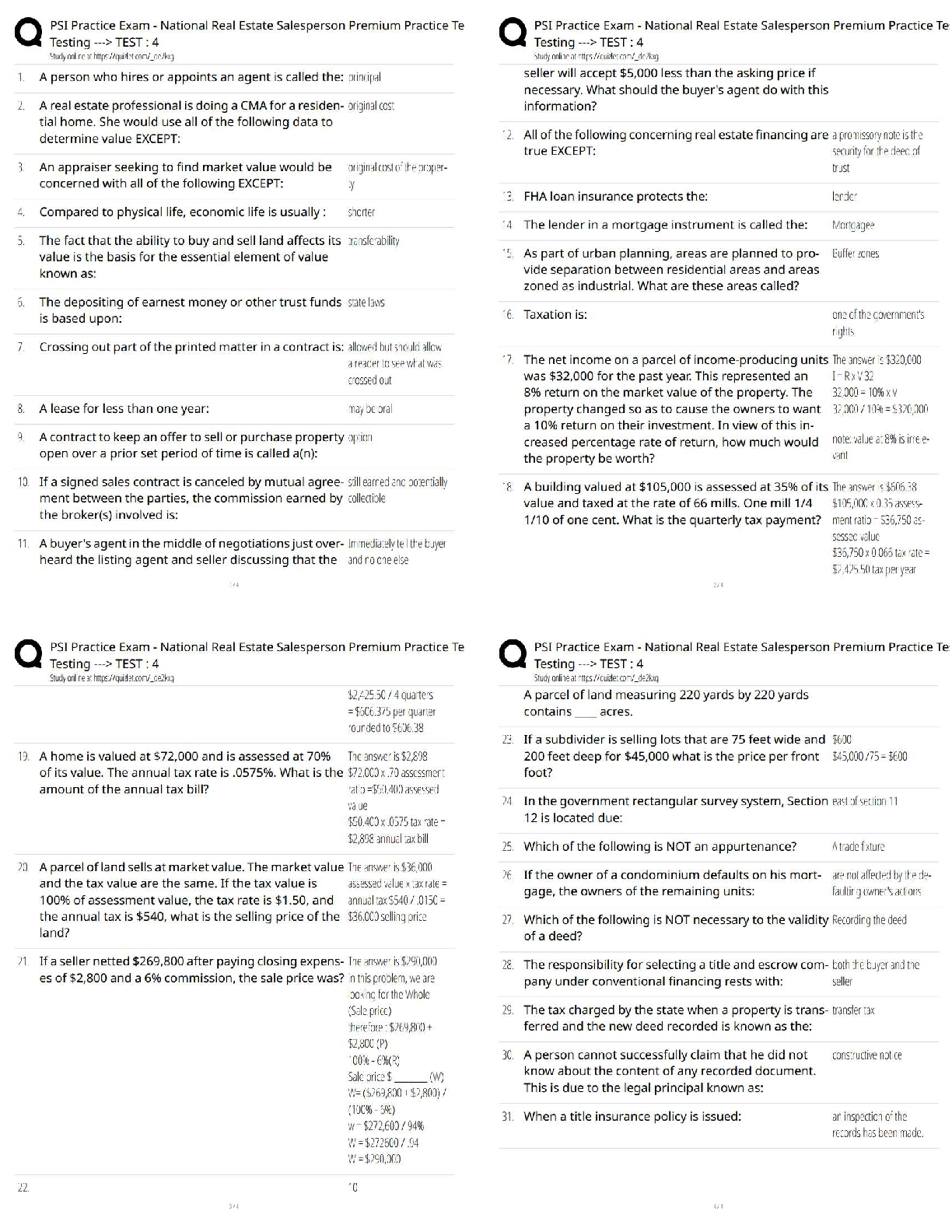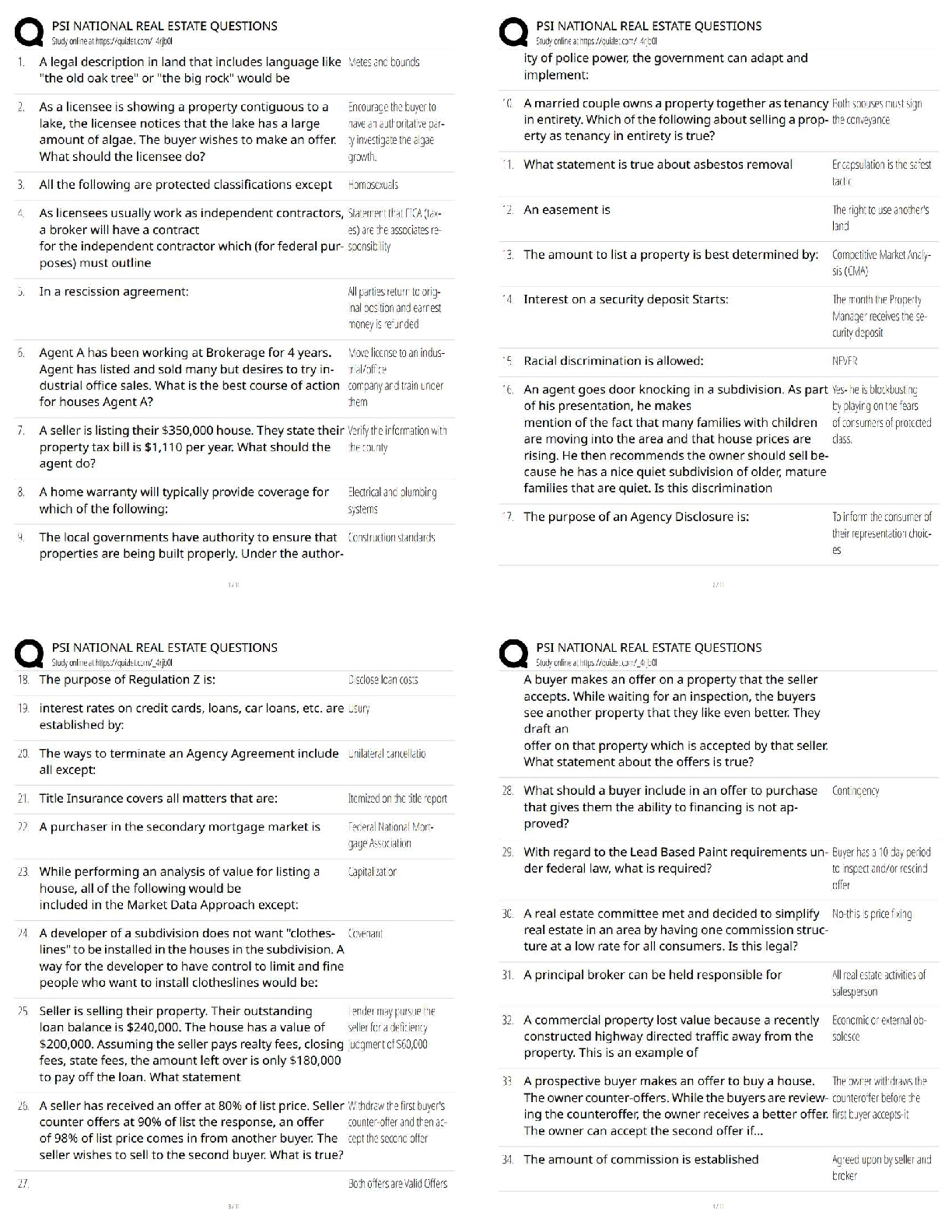Literary Studies > QUESTIONS & ANSWERS > AP Euro Exam Study Guide Questions and Answers Rated A+ (All)
AP Euro Exam Study Guide Questions and Answers Rated A+
Document Content and Description Below
AP Euro Exam Study Guide Questions and Answers Rated A+ Italian Renaissance ✔✔The Italian Renaissance was the beginning of the Renaissance, a period of great cultural change and achievement in ... Europe that spanned the period from the end of the 13th century to about 1600. Jacob Burckhart ✔✔A 19th century historian who claimed the Renaissance period stood in distinct contrast to the Middle Ages city-states ✔✔Small independent states mostly in the central and northern Italian peninsula that caused much competition and were not politically unified between the 10th and 15th centuries. Signori ✔✔Despots who controlled much of Italy by 1300. Oligarchies ✔✔rule of merchant aristocracies commenda system ✔✔contract between merchant and "merchant-adventurer" who agreed to take goods to locations and return with the proceeds(for 1/3 of profit condotierri ✔✔mercenary generals of private armies who were hired by cities for military purposes Republic of Florence ✔✔(included Republic of Genoa) was the center of the Renaissance during the 14th and 15th centuries, was dominated by the Medici family Medici family ✔✔Dominated the Republic of Florence,were the bankers of the Catholic Church Cosimo de' Medici ✔✔(1389-1464) allied with other powerful families of Florence and became the unofficial ruler of the Republic of Florence, was the most powerful of the Medici rulers.Lorenzo de' Medici (the Magnificent) ✔✔the son of Cosimo de' Medici. Was a significant patron of the arts. Was damned to hell by Savanarola Duchy of Milan ✔✔ruled by the Sforza family after 1450. Was a major enemy of Venice and Florence until the Peace of Lodi in 1454 Sforza family ✔✔ruled the Duchy of Milan after 1450 Peace of Lodi, 1454 ✔✔created a relative 40-year period of peace in northern Italy and a stable balance of power. The peace was, in part, a response to concerns over the ottaman conquest of Constantinople (1453). Republic of Venice ✔✔longest lasting of the Italian states (did not succumb to foreign powers until Napoleon conquered it in the early 1800's). Was the greatest maritime power in Italy and one of the world's great naval and trading powers during the 14th and 15th centuries. (also called the Venetian Republic Papal States ✔✔the Italian city-states, including Rome, in which the pope served as both a religious and political leader controlling most of central Italy. The Papal States were one of the five powers that dominated the Italian Peninsula also including Venice, Milan, Florence, and the kingdom of Naples Naples, Kingdom of the Two Sicilies ✔✔Italian kingdom that included the southern Italian region of Naples and the island of Sicily. It was the only Italian city-state to officially have a king. King Charles VIII and the French took control until Spain took over in 1435. Charles VIII ✔✔King of France whose reign was from 1483 till 1498. He and his French troops invaded Italy in 1494 beginning the First Italian War. He was encouraged by Milan's despot,Ludovico "the Moor" to invade Milan's enemy, Naples, also causing a series of foreign invasions in Italy Girolamo Savonarola ✔✔A Dominican friar who was the unofficial leader of Florence from 1494 to 1498 who pledged to rid Florence of its corruption. He contributed to the fall of the Medici dynasty by attacking the undemocratic government of Lorenzo de' Medici with his fiery sermons. He was excommunicated later on and burned at the stake Machiavelli ✔✔famous writer of the Renaissance who wrote The Prince, a book that focused on political power: how a ruler should gain, maintain and increase it. His ideas about political superiority dominated the Renaissance. Believed "it was better to be feared than to be loved". He lived from 1469 to 1527 The Prince ✔✔the quintessential political treatise of the 16th century; "ends justified the means;" "better to be feared than loved;" rulers had to be practical and cunning, aggressive and ruthless Cesare Borgia ✔✔son of Pope Alexander VI, inspired/model for Machiavelli's The Prince, made a cardinal at age 18, but became the first person to resign a cardinalship. Sack of Rome, 1527 ✔✔by armies of Holy Roman Emperor Charles V symbolized the end of the Renaissance in Italy Charles V ✔✔the Holy roman Emperor and the King of Spain, leader of the Habsburg family. He split his empire between his brother Ferdinand and his son Philip II of Spain. He fought against Suleiman the Magnificent almost continually. Called for the Diet of Worms during the Reformation. humanism ✔✔revival of antiquity in philosophy, literature, and art; individualism and the great potential of human beings; largely based on the writings of Cicero, Livy, Virgil, and Quintilian, and Plato; largely known to be secular [Show More]
Last updated: 3 years ago
Preview 1 out of 98 pages
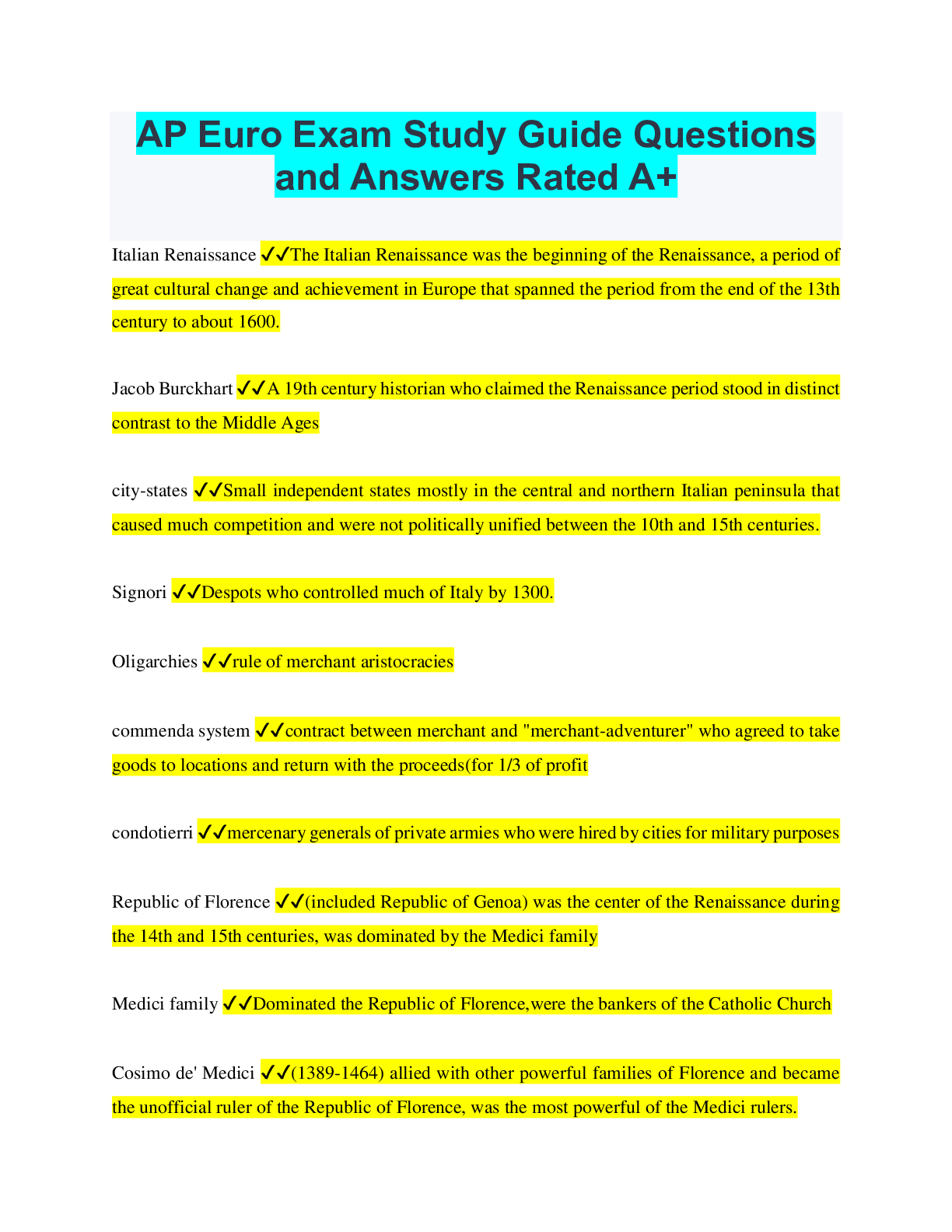
Buy this document to get the full access instantly
Instant Download Access after purchase
Buy NowInstant download
We Accept:

Also available in bundle (1)
Click Below to Access Bundle(s)
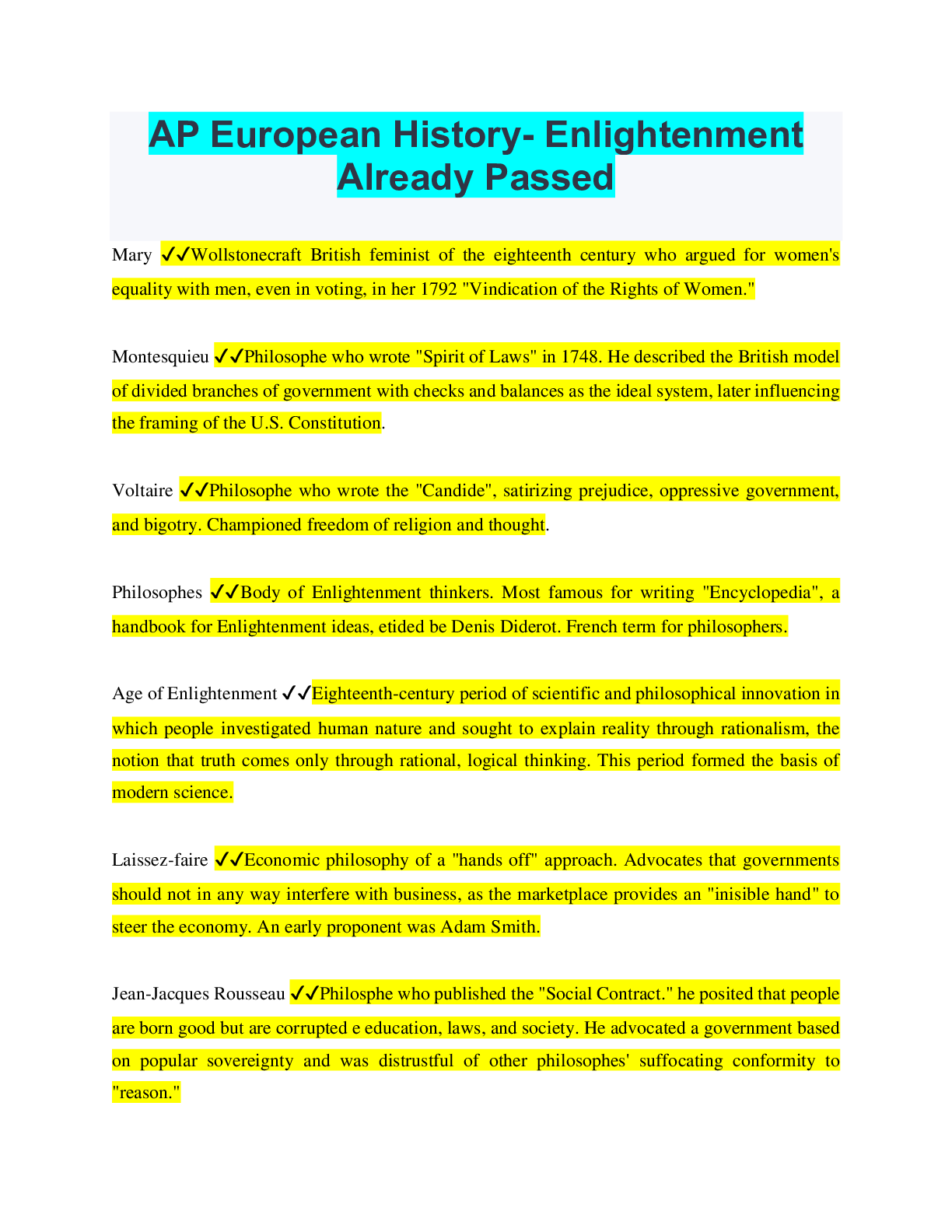
AP European History Exam FULL SOLUTION PACK(ALL AP European History Exams AND STUDY QUESTIONS ARE HERE ,ALL ANSWERED CORRECTLY)
AP European History- Enlightenment Already Passed AP European History- French Revolution Questions and Answers Graded A+ AP European History – Renaissance Already Passed AP European History E...
By Alphascore 3 years ago
$15
20
Reviews( 0 )
$8.00
Can't find what you want? Try our AI powered Search
Document information
Connected school, study & course
About the document
Uploaded On
Nov 14, 2022
Number of pages
98
Written in
All
Additional information
This document has been written for:
Uploaded
Nov 14, 2022
Downloads
0
Views
318

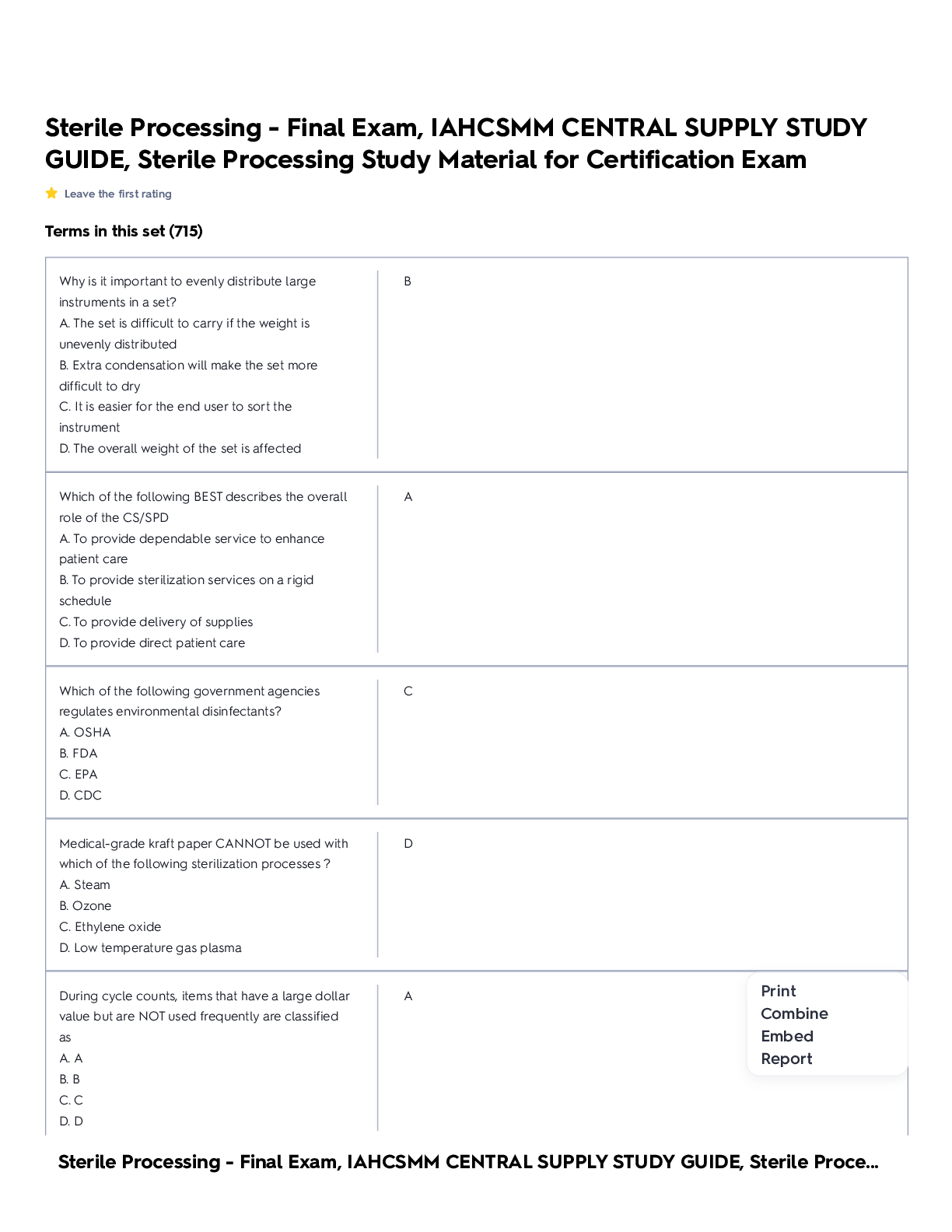

 with Complete Solution.png)
 Career Information with Complete Solution.png)


 for E-6 Career Information_watermark.png)
